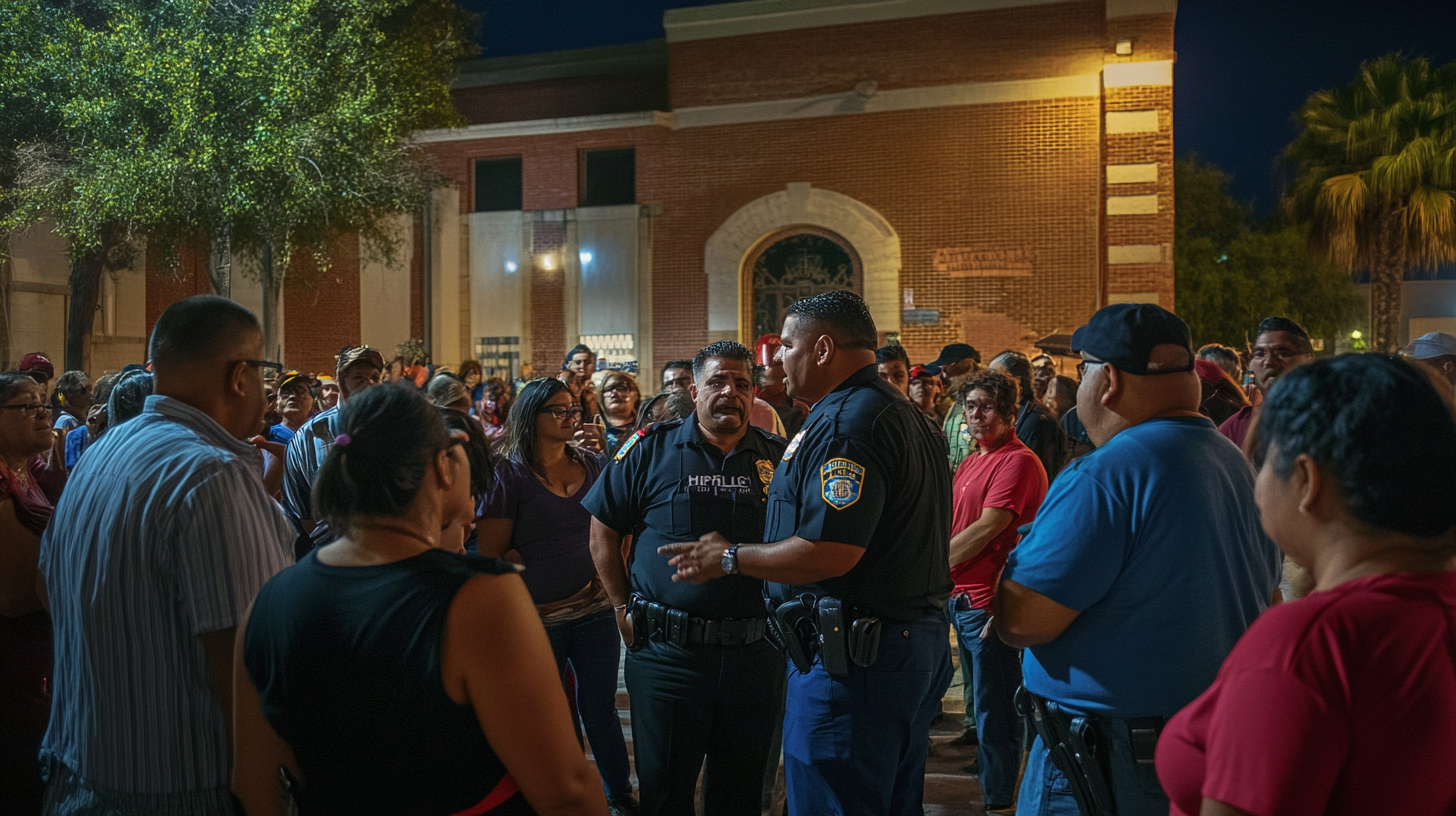**QR Code Tickets Transform Policing in Harlingen**
The Harlingen Police Department has taken an innovative step to improve how parking, traffic, and code violations are managed in the Rio Grande Valley. In a pioneering move, the department introduced tickets embedded with QR codes, providing significant benefits to both law enforcement and the community.
According to the department, this new system—which became active just two weeks ago—aims to streamline the processing and payment of tickets, track citations accurately, and monitor potential cases of racial profiling. The addition of this technology marks a significant shift in local policing strategies aimed at improving transparency and efficiency.
**A New Way to Manage Violations**
The introduction of QR codes allows ticket recipients to access detailed information about their violations simply by scanning the code on their smartphones. Facilitating a quick and accessible overview, these codes present details such as the nature of the violation, the corresponding court date, and instructions for payment or contesting the citation.
“Having QR codes on the tickets makes it easier for people to understand what they’re being cited for and how to address it. It’s not just more efficient for us; it makes the entire process more user-friendly for the community,” explained Sgt. Salvador Carmona of the Harlingen Police Department’s Highway Enforcement Unit.
Additionally, this system seeks to provide feedback opportunities for the public regarding their interaction with officers, aiming to foster trust and accountability within the Valley community.
**Enhancing Efficiency and Addressing Local Concerns**
The new ticketing method offers more than just administrative convenience. It addresses long-standing issues of transparency and accountability in law enforcement—a concern prevalent not only in Harlingen but throughout South Texas. By tracking citations digitally, the police department can better monitor who is being cited and identify any patterns of bias or disproportionate actions.
Such technological advancements are becoming more necessary as Valley residents face growing concerns over fair treatment, an issue that has been a focal point for many community advocacy groups in recent years. Harlingen’s initiative could serve as a model for other departments in the region, illustrating how integrating technology can support both law enforcement objectives and community concerns.
**Broader Regional Developments**
This local development occurs amidst various significant events in the RGV. For instance, a stolen horse trailer from Hidalgo County was recently recovered in Edinburg, showcasing successful multi-agency cooperation to tackle crime. Additionally, regional education dynamics are shifting, with La Joya Independent School District requiring employees from two campuses to reapply for their positions, stirring discussions about education and job security.
Moreover, the broader community is being kept abreast of changing weather conditions, with temperatures expected to vary from the 40s to 70s through late February. These forecasts are critical as they affect daily life and economic activities throughout the Valley.
**Future Implications for the RGV Community**
Looking forward, the success of Harlingen’s QR code initiative could inspire other communities in South Texas to adopt similar practices. By leveraging technology, municipalities can enhance operational efficiency, reduce processing costs, and improve public engagement—all pivotal elements for progressive community governance.
While promising, these changes also predicate discussions on how such technological advancements will affect jobs in traffic management and whether they may lead to increased automation in other sectors. Residents and policymakers alike must navigate these challenges with careful planning and open dialogue.
**Community Resources**
For those who receive a QR-coded ticket, the Harlingen Police Department advises visiting their official website or contact line for assistance in scanning codes and understanding what each citation entails. Local libraries and community centers may also offer resources for those unfamiliar with digital technology, ensuring equitable access to information across demographic lines.
In summation, the introduction of QR codes on tickets represents a critical evolution in how law enforcement interacts with Valley residents, emphasizing both efficiency and transparency. As Harlingen continues to adapt to new technologies, its efforts could pave the way for broader adoption across South Texas, aligning local governance with best practices for modern policing.







